Venezuela, Colombia appoint ambassadors in move to restore diplomatic ties
Venezuela and Colombia have appointed new ambassadors to their respective capitals in a move to rebuild ties following years of tension, days after Gustavo Petro took office as Colombia's first leftist president.
Venezuelan President Nicolas Maduro said in Caracas on Thursday that former Foreign Minister Felix Plasencia had requested his accreditation from the Colombian government "and will soon be in Bogota."
He praised Plasencia as "a man of great diplomatic experience."
"In response to the Venezuelan government, I have appointed an ambassador who will (also) be tasked with normalizing diplomatic relations between the two countries," Petro also announced in a video statement, naming former senator, Armando Benedetti, as Bogota’s new envoy to Caracas.
In addition to exchanging ambassadors, the normalization process between the two Central American neighboring states will include the full reopening of the more than 2,500-kilometer joint border, which has been largely closed to vehicles since 2015 -- though it was opened to pedestrians late last year.
Maduro also declared on state TV on Thursday that Vice President Delcy Rodriguez will be tasked with designing a plan to reopen the nation's border with Colombia and boost bilateral trade and investment.
"We will continue step by step and at a safe pace to advance toward the restoration and reconstruction of political, diplomatic, and commercial relations," he underlined.
The governments of Caracas and Bogota also announced intentions to resume bilateral military relations, according to local media reports.
The development comes two weeks after Venezuelan Foreign Minister Carlos Faria and Colombia’s then foreign minister-designate Alvaro Leyva issued a joint declaration, announcing their intention to resume full diplomatic ties after Petro takes office.
Leyva at the time said they “expressed their desire to progress on a work agenda towards the gradual normalization of bilateral relations from August 7 by naming ambassadors and diplomatic and consular officials”.
The two top diplomats also reaffirmed “their willingness to make joint efforts to guarantee security and peace on the border of our two countries”, he added.
Relations between the two countries were severed by Bogota in 2019 after US-sponsored Colombian President Ivan Duque refused to recognize the reelection of Venezuelan President Maduro under US pressure.
Duque, instead, sided with Washington by arbitrarily recognizing Venezuela’s US-backed opposition leader Juan Guaido as the nation’s acting president.
Colombia was among more than 50 US-led countries – mostly in Europe and the Americas – that refused to recognize Venezuela’s 2018 presidential election, which was boycotted by the US-backed opposition.
As a result, embassies and consulates in both countries were shut down, and flights between them were also discontinued.
Even the land border between the two nations remained closed between 2019 and October 2021.
Maduro blamed Colombia’s right-wing president for being part of the US-led plot to topple his democratically-elected government, as Duque repeated claims that his Venezuelan counterpart was harboring Colombian rebels that had carried out attacks against his security forces.
Petro’s surprise victory in Colombia’s June presidential election ushered in a new era of politics in the Latin American nation after a century of right-wing rule and decades of national unrest.
The 62-year-old former member of the M-19 guerrilla movement defeated right-wing real estate magnate Rodolfo Hernandez with an unexpectedly wide margin of 719,975 votes, garnering 50.5 percent of the votes.
Petro, a senator in his third attempt to win the presidency, previously served as the mayor of the capital Bogota. During his campaign, the left-wing politician vowed to end inequality and focus on pension reforms and the country's taxation policy.
"Today is a day of celebration for the people. Let them celebrate the first popular victory," Petro tweeted after the historic win. "May so many sufferings be cushioned in the joy that today floods the heart of the homeland."
He issued a call for unity during his victory speech and extended an olive branch to some of his staunch critics, saying all members of the opposition will be welcomed at the presidential palace "to discuss the problems of Colombia."
"From this government that is beginning there will never be political persecution or legal persecution, there will only be respect and dialogue," he said, adding that he will listen to not only those who have raised arms but also to "that silent majority of peasants, Indigenous people, women, youth."
Trump says US will be ‘very strongly involved’ in Venezuela’s oil industry
‘Naked imperialism’: Netizens condemn US for attacking Venezuela and kidnapping its leader
How Gen. Soleimani fought terrorism and exposed the fallacy of West's 'war on terror'
Condemnations pour in after US bombing of Venezuela, kidnapping of Maduro
Gen. Soleimani represented resistance to interventionism in Global South: Analyst
‘Stronger resistance, declining US power’: IRGC marks Gen. Soleimani’s legacy
Harnessing one of world’s largest wind corridors in Iran
Iran denounces US strikes on Venezuela, urges UNSC to stop aggression


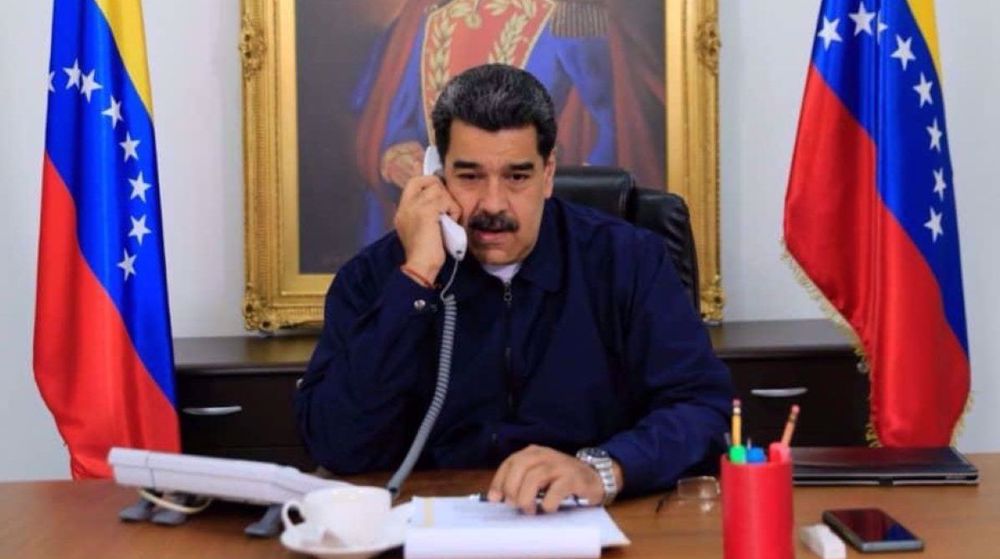

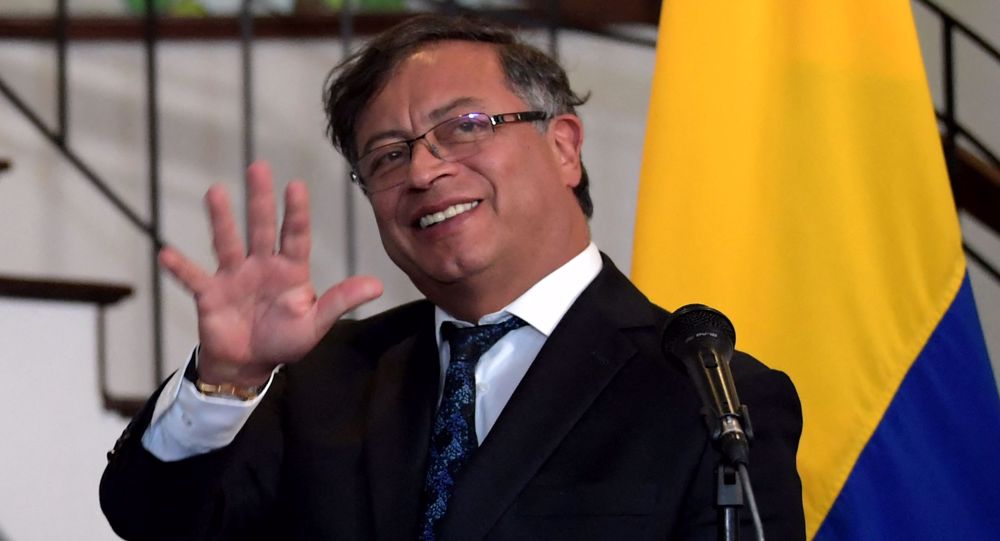


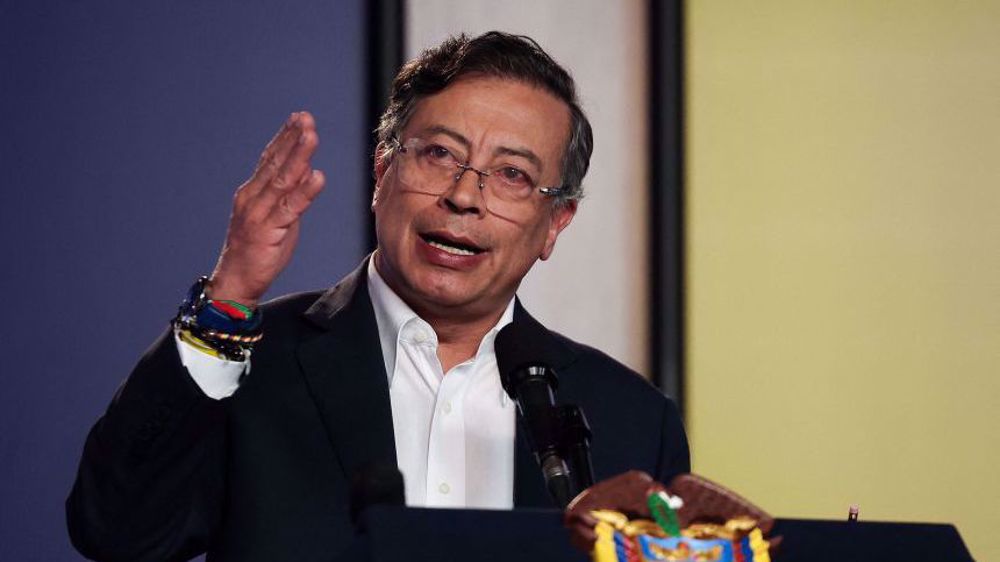



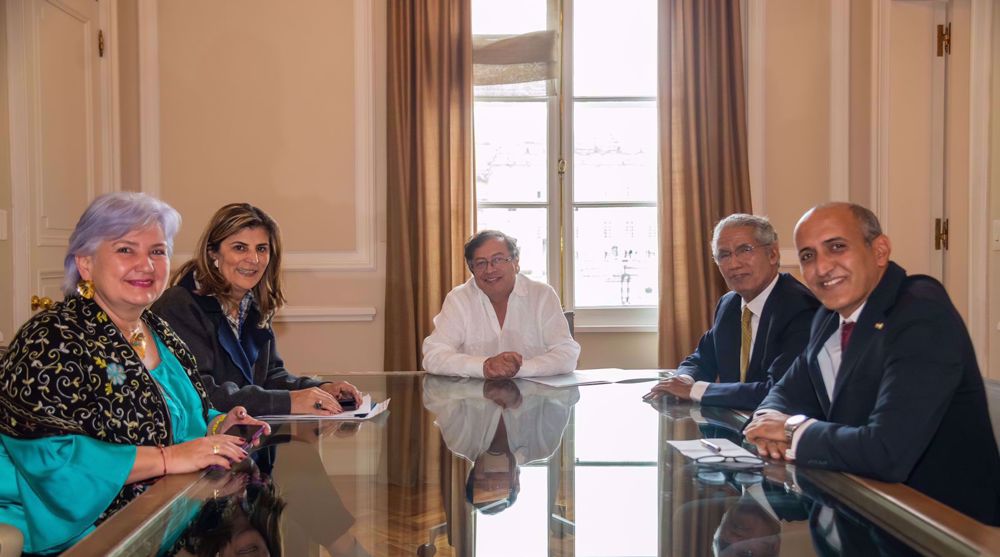
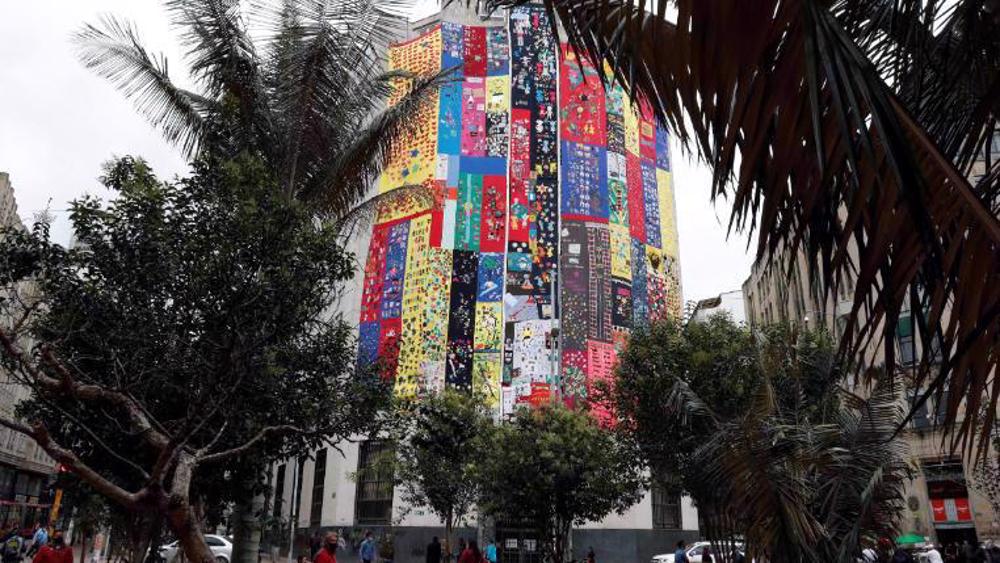
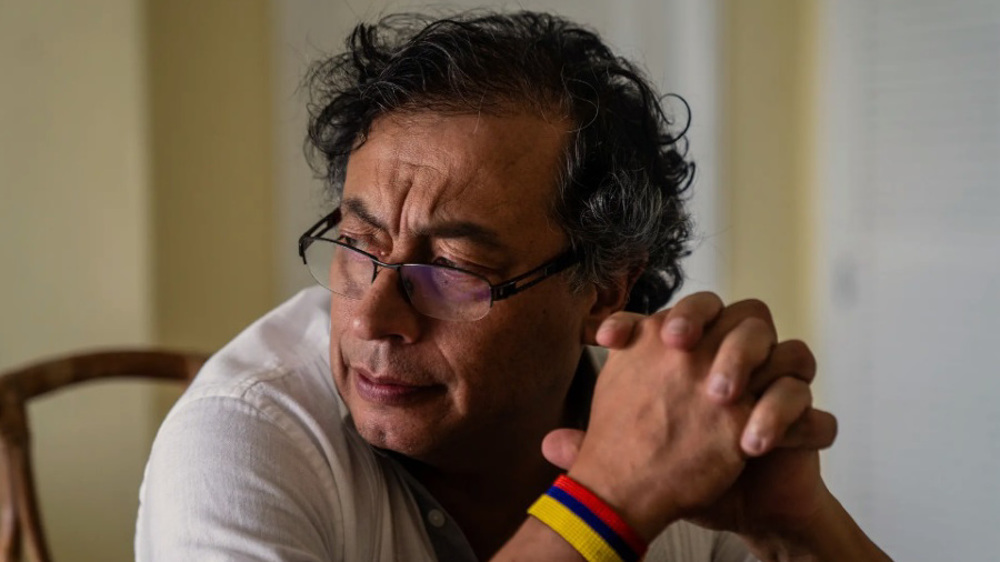

 This makes it easy to access the Press TV website
This makes it easy to access the Press TV website